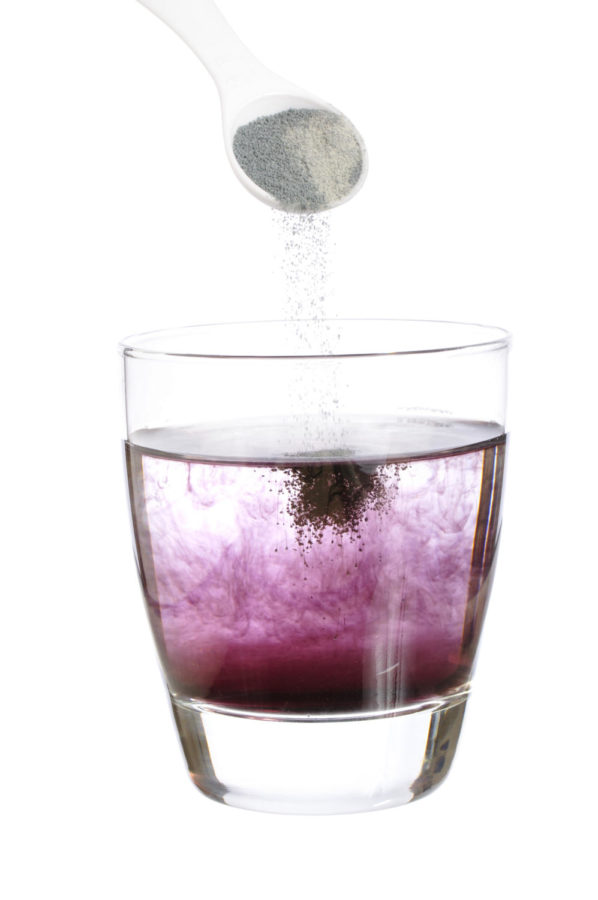New powdered alcohol proposed to be banned in Iowa
Powdered alcohol mix is gaining popularity while some worry about reckless use.
March 27, 2015
What happens when you dehydrate a vapor-sorbable carbohydrate base down to an extremely low moisture content and mix it with ethanol?
You get powdered alcohol — and a lot of opposition.
This creation, called “Palcohol,” was approved just two weeks ago by the Alcohol and Tobacco Tax and Trade Bureau, and legislation has already been proposed to ban it in the state of Iowa.
The controversial product was created by Mark Phillips for the company Lipsmark. Phillips said he saw a need for a new kind of alcohol because carrying bottles of liquor while on a hike or biking trip is “totally impractical.”
“When I hike, kayak, backpack, whatever, I like to have a drink when I reach my destination,” Phillips said in an informational video on the Palcohol website. “So I created Palcohol, which is so light and easy to pack.”
Palcohol comes in a package similar in size and form to a drink pouch, with each bag containing one shot of alcohol in powdered form. Consumers add six ounces of water — or any liquid they want — and shake the bag to create a mixed drink.
There are currently five versions of the product that Phillips plans to have in stores by summer: vodka, Puerto Rican rum, cosmopolitan mix, margarita mix (called Powderita) and Lemon Drop mix.
These might seem like a convenient alternative to bottled alcohol, but there are still too many unknowns, said Robert Bailey, public information officer for the Iowa Alcoholic Beverages Division. That’s why Iowa Alcoholic Beverages Division introduced a bill to ban Palcohol in Iowa.
“We just saw a lot of unanswered questions and dangers involved with the product,” Bailey said. “It was susceptible to more abuse than typical alcohol.”
Bailey said he worries that consumers — and those under the age of 21 — will not use the product merely for its convenience on hiking trips.
“We worried about the capacity for misuse to abuse, from snorting to mixing with existing drinks,” he explained. Bailey is also concerned that university students could sneak Palcohol packets into alcohol-free events and mix them with the soft drinks or water provided.
Phillips says these arguments are “completely false,” explaining that snorting alcohol would be extremely painful and impractical, “even for an irresponsible person.” Phillips isn’t worried about underage consumers getting hold of his product either.
“Palcohol is just like liquid alcohol,” he said. “It will be sold in the same licensed establishments where alcohol is currently sold, and only adults 21 years or older with proper identification can buy it.”
But Brian Vanderheyden, health and prevention specialist at Thielen Student Health Center, said he believes that because Palcohol is so portable and easily hidden, it will be more easily accessed by underage consumers.
“We know that if alcohol is more available in an environment, drinking rates go up,” Vanderheyden said.
As a university prevention specialist, Vanderheyden frequently sees alcohol used in high-risk ways by young people, and he thinks Palcohol has the potential to make alcohol abuse even more prevalent among students.
“High-risk drinking has been a public health concern for a long time,” he said. “So if we make alcohol more accessible to anybody, it’s not going to help the issue.”
Lipsmark will officially begin selling Palcohol this summer, but the product won’t make it to liquor store shelves in Alaska, Delaware, Louisiana, South Carolina or Vermont, where the sale of powdered alcohol has already been banned.
Other states are also attempting to ban the product, including Iowa. In fact, the bill to ban Palcohol in the state has already passed the Iowa Senate with only two dissenting votes.
“Judging from the support it had, I will be surprised if it doesn’t pass the House,” Bailey said.

















